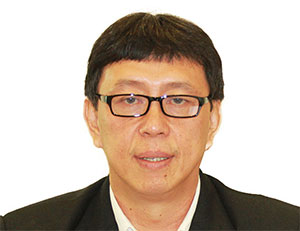Foreign real estate investors take wait and see stance
 Leong Swee Chow, general director of SetiaBecamex, which is developing the EcoLakes project in Binh Duong province, discussed the issues further with VIR’s Ngoc Linh.
Leong Swee Chow, general director of SetiaBecamex, which is developing the EcoLakes project in Binh Duong province, discussed the issues further with VIR’s Ngoc Linh.
The government has attempted to address problems with the property market this year through revisions to the Land Law, the VND30 trillion subsidy to the low-cost and social housing segment, tax reductions for property developers and the establishment of the Vietnam Asset Management Company (VAMC), which should help deal with bad debt in the sector. What difference have these policies made?
These initiatives are a welcome move given the challenging real estate market environment. Given the rather significant role the real estate market plays in the overall economy, this is even more the case. As can be expected, different policies affect the market differently. Industry practitioners and watchers are keenly observing the tackling of non -performing loans (NPL) via the VAMC. The purchase of NPLs by VAMC towards the last quarter of 2013 was encouraging, as clearly a robust banking industry is required for the property market to thrive. To get an indication of the effects of the pro-property sectors policies, one needs to gauge volume and price movements of real estate transactions following implementation, plus the lead time to let the policy work. If the authorities see positive results, then the policies can be deemed to have worked.
What do you think about the outlook for next year? What will be the key driving force in the new year?
The property market will still be generally going through the recovery phase. Depending on which sector, the recovery’s strength and growth will differ. In general it is expected there will be a better pace to the recovery than last year and the volumes of real estate transactions at a retail level are also expected to increase. This would be encouraging if it happens.
As a market observer, what is hindering the rebound of Vietnam’s property market that the government should change?
The authorities have been mulling over a range of solutions to revitalise the property sector. This includes the review of foreign property ownership to bring it more in line with regional and global practice. Some relevant decrees too are being reviewed. It may be pertinent to note that given the extended problems the property market has faced, it appears that sure and possibly drastic measures need to be taken to regain confidence, a key element in the property business.
According to the Foreign Investment Agency, most new FDI residential urban projects this year were registered by well-known players such as Keppel Land, Indochina Land or VSIP which have been in Vietnam for a long time already and have strong experience with the market. Do you think the Vietnam property market remains risky for new foreign property developers?
Given the track record of foreign developers investing in Vietnam in the last six years and longer, a new entrant would be particularly cautious to committing fresh funds here. Returns have been challenging to say the least. Operational issues are also areas of concern. All in all from a risk-return perspective, unless there are significant changes, foreign developers by our reckoning will tread on the conservative and cautious side.
EcoLakes is the first property project that Malaysia’s SP Setia has invested in Vietnam. The second one is EcoXuan. Will SP Setia keep expanding investment in Vietnam?
SP Setia is still keen to seek realistically priced land to develop into large landed type projects. We believe our gated, guarded and well-planned developments with an emphasis on landscaping will continue to be well received. This is proven by the strong reviews of our Eco Xuan and Eco Lakes projects in Binh Duong.
What the stars mean:
★ Poor ★ ★ Promising ★★★ Good ★★★★ Very good ★★★★★ Exceptional
Latest News
More News
- An Phat 5 Industrial Park targets ESG-driven investors in Hai Phong (January 26, 2026 | 08:30)
- Decree opens incentives for green urban development (January 24, 2026 | 11:18)
- Public investment is reshaping real estate’s role in Vietnam (January 21, 2026 | 10:04)
- Ho Chi Minh City seeks investor to revive Binh Quoi–Thanh Da project (January 19, 2026 | 11:58)
- Sun Group launches construction of Rach Chiec sports complex (January 16, 2026 | 16:17)
- CEO Group breaks ground on first industrial park in Haiphong Free Trade Zone (January 15, 2026 | 15:47)
- BRIGHTPARK Entertainment Complex opens in Ninh Binh (January 12, 2026 | 14:27)
- Ho Chi Minh City's industrial parks top $5.3 billion investment in 2025 (January 06, 2026 | 08:38)
- Why Vietnam must build a global strategy for its construction industry (December 31, 2025 | 18:57)
- Housing operations must be effective (December 29, 2025 | 10:00)
















 Mobile Version
Mobile Version